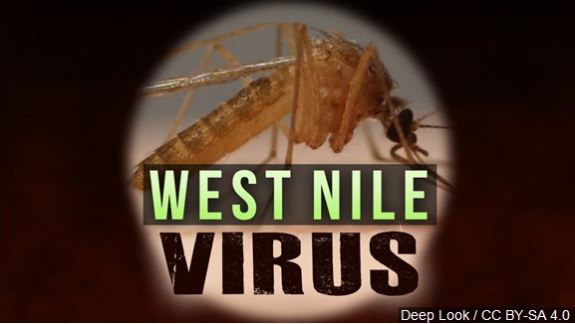San Bernardino County reports first West Nile Virus-related death of 2023

A resident of San Bernardino County with underlying health problems who tested positive for West Nile virus has become the county’s first WNV-associated death of 2023, officials announced on Wednesday.
County officials said there have been seven WNV cases within the county this year. In 2022, San Bernardino County detected four WNV cases, including one death.
Check Out: 2 human cases of West Nile Virus confirmed in Riverside County
“Due to the increased rainfall this year, there has been a surge in mosquito activity this season. Furthermore, the rainfall from the recent tropical storm is likely to exacerbate WNV,” said San Bernardino County Health Officer Michael A. Sequeira, M.D. “We urge everyone to take proactive measures to eliminate potential breeding sites around their homes and to protect themselves from mosquito bites.”
WNV is transmitted to humans through the bite of an infected mosquito. Signs and symptoms of WNV may include fever, body aches, rash, nausea, vomiting, and headache.
Most people infected with the virus have no symptoms. However, people 50 years of age and older and individuals with diabetes, hypertension, who are immunocompromised or have a recent history of chemotherapy have a higher chance of getting sick and are more likely to develop complications. The most effective way to avoid WNV infection is to prevent mosquito bites.
If you experience a sudden high fever (above 102°F), severe headache, or a stiff neck, seek medical help right away. The risk of infection due to WNV typically increases from summer through early fall. Residents are encouraged to protect themselves from mosquito bites during outdoor activities, especially at dawn and dusk.
Residents can protect themselves from mosquito bites by taking the following precautions:
DRESS – Wear shoes, socks, long pants, and long-sleeved shirts that are loose-fitting and light-colored.
DRAIN – Remove or drain all standing water around your property where mosquitoes lay eggs, including birdbaths, ponds, old tires, buckets, clogged gutters, and puddles from leaky sprinklers.
DOORS – Make sure doors and windows have tight-fitting screens. Repair or replace screens that have tears or holes to prevent mosquitoes from entering the home.
REPEL – Use insect repellent that has ingredients approved by the EPA such as DEET, IR 3535, and oil of lemon eucalyptus.
REPORT – Report green or neglected pools by calling the San Bernardino County Mosquito and Vector Control Program at (800) 442-2283. Press 3 when prompted.
For more information on West Nile virus, to report a standing water source, or to request a courtesy mosquito inspection, visit the San Bernardino County Mosquito and Vector Control Program at ehs.sbcounty.gov/programs/mosquito-and-vector-control or call (800) 442-2283.